“Yes,” Says Team of Healthcare Experts, Employer CEOs and Patient Representative at the Executives’ Club of Chicago, “But You Must Change Your Ways”
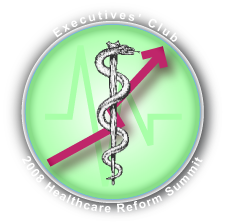 Honestly Assessing Quality—Engaging Consumer Empowerment—Trading in the Ferrari for a Chevy Honestly Assessing Quality—Engaging Consumer Empowerment—Trading in the Ferrari for a Chevy
The Executives’ Club of Chicago convened its healthcare reform summit at the Hilton Chicago on 20 February 2008, drawing on diverse expertise. Ian Morrison, Ph.D., healthcare futurist, gave the keynote and moderated two panels: first, the healthcare expertise panel with Dean Harrison, CEO Northwestern Memorial Healthcare; William Novelli, CEO AARP; Scott P. Serota, CEO BlueCross BlueShield Association; and second, the business executive panel with Andrew M. Appel, Chairman AON Consulting; John A. Edwardson, CEO, CDW; John B. Menzer, Vice Chairman and Administrative Officer, Wal-Mart Stores. Robert L. Parkinson, CEO, Baxter Healthcare gave an insightful point of view on recommended actions to close the event.
There was broad agreement that the U.S. healthcare system was broken, and speakers offered excellent insights and perspectives about how to fix the system. However, what they didn’t say was as interesting as what they did, and I will address two key issues in […]
India Trade Minister Draws Chicago-India Parallels at Executives’ Club offers coverage of Shri Kamal Nath’s Chicago presentation. Key themes: new global economic architecture presages economic realignment and thinking beyond the obvious to tap emerging opportunities.
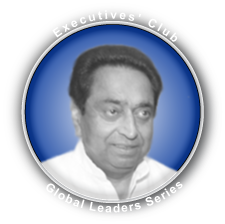 Illinois leaders were addressed by His Excellency Shri Kamal Nath, Minister of Commerce and Industry, Republic of India. True to form, His Excellency struck chords of transformation, partnership, common interests and harmony at the lunch held in his honor at the University Club on 19 February 2008. Attending were Chicago Mayor Richard M. Daley, Mr. Rajinder Bedi, Managing Director of the Illinois Office of Trade and Investment, The Honorable Susan Schwab, U.S. Trade Representative, Craig S. Donohue, Chief Executive Officer, CME Group and John Estey, President & Chief Executive Officer, SC Electric Company. Illinois leaders were addressed by His Excellency Shri Kamal Nath, Minister of Commerce and Industry, Republic of India. True to form, His Excellency struck chords of transformation, partnership, common interests and harmony at the lunch held in his honor at the University Club on 19 February 2008. Attending were Chicago Mayor Richard M. Daley, Mr. Rajinder Bedi, Managing Director of the Illinois Office of Trade and Investment, The Honorable Susan Schwab, U.S. Trade Representative, Craig S. Donohue, Chief Executive Officer, CME Group and John Estey, President & Chief Executive Officer, SC Electric Company.
Reading between the lines, the U.S. and India stand at a significant turning point: India’s impressive economic growth is a significant element of the ongoing redistribution of global economic power—which holds excellent opportunities for U.S. businesses and workers that are looking for it.
[…]
Web 2.0 Impact on 2008 U.S. Presidential Election Declared Minimal at Executives’ Club, but cantankerous subtext hints at possible monkey wrench—democratic race in spotlight.
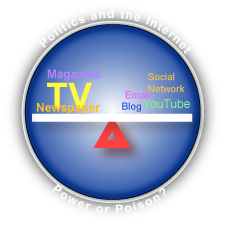 The Executives’ Club of Chicago fielded an expert panel to brief Midwest executives on Web 2.0’s current and likely impact on one of the most watched U.S. elections in recent history. Marie Cocco, a renowned political columnist, Peter Greenburger, Director of Google’s Elections & Issue Advocacy Team, and Alan Webber, Senior Analyst of Forrester Research brought to bear diverse perspectives on the question at the event, which took place at The University Club on January 31, 2008. The Executives’ Club of Chicago fielded an expert panel to brief Midwest executives on Web 2.0’s current and likely impact on one of the most watched U.S. elections in recent history. Marie Cocco, a renowned political columnist, Peter Greenburger, Director of Google’s Elections & Issue Advocacy Team, and Alan Webber, Senior Analyst of Forrester Research brought to bear diverse perspectives on the question at the event, which took place at The University Club on January 31, 2008.
They produced a logical conclusion, namely that Web 2.0 was a force in the making but that it would probably not be a decisive factor this year. The session was graciously co-hosted by Communications Committee Co-Chairs David Prosperi, Vice President Global Public Relations, AON and David Blake, Publisher of Crain’s Chicago Business.
As usual, I will share my notes of speakers’ remarks before adding my between the lines analysis and conclusions. As an […]
Year in Review 2007—Editor’s Choice of the Global Human Capital Journal
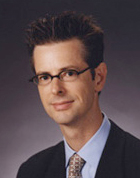 As I reflect on 2007 and create strategy for 2008, several macro-trends come into sharp relief, and I believe that some of them might be helpful to you as you conduct your own planning. As always, I focus on emerging phenomena because they are areas in which disruption and discontinuous change are acting on markets, thereby elevating threats and opportunities. Helping leaders to create strategy to manage the risk of unusual market developments is the focus of my consulting practice. As I reflect on 2007 and create strategy for 2008, several macro-trends come into sharp relief, and I believe that some of them might be helpful to you as you conduct your own planning. As always, I focus on emerging phenomena because they are areas in which disruption and discontinuous change are acting on markets, thereby elevating threats and opportunities. Helping leaders to create strategy to manage the risk of unusual market developments is the focus of my consulting practice.
In 2007 it became clear to me that we were entering a profound social transformation that would produce an unimaginable degree of change. Unlike the technology-precipitated change that I’ve been helping people with since the 1990s, technology is shifting to the background now, and pervasive social change is taking the stage. Look for disruption in all areas affected by how people connect, communicate, purchase and collaborate: business, politics, community and leisure. Moreover, these changes are completely global with all the variations that engenders.
I can’t tell […]
Globalization’s 21st Century Makeover explains how “emerging” market companies are rapidly becoming global players—to whit, new owners for Jaguar and Land Rover.
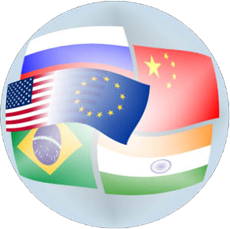 Emerging countries have long been regarded by globalizers as targets for exploitation, but 21st century market forces are turning legacy thinking on its head, which produces disruption and its sibling, opportunity. Emerging countries have long been regarded by globalizers as targets for exploitation, but 21st century market forces are turning legacy thinking on its head, which produces disruption and its sibling, opportunity.
The conventional thinking goes that emerging countries like Brazil, Russia, India and China (BRIC) have talented knowledge/human capital resources that can be tapped in outsourcing and offshoring arrangements. Moreover, these workers’ employment in high value knowledge jobs creates a new consumer class among large populations. Emerging countries’ rapidly growing consumer markets stand in sharp contrast to developed countries’, which are flat or shrinking. China and India have been relaxing restrictions on foreign ownership, which has increased FDI, especially in China, enabling foreign companies to invest in and buy BRIC companies.
However, the big story in 2007 was the opposite:
[…]
Disrupting the Automobile explores how several ventures are changing the rules of an intractable industry.

The automobile is a personal manifestation of the ultimate promise of the Industrial Economy—that physical power is essentially free—because it enables people to move quickly and easily. People just love cars because it is immensely satisfying to glide effortlessly (traffic notwithstanding ,^) from one place to another with a high degree of individual freedom.
However, as 2007 draws to a close, autos’ current reliance on fossil fuels makes it increasingly obvious that we need to change the rules. First, new wealth in emerging markets is dramatically increasing auto ownership and its concomitant demand for oil. Increased demand and uncertain supply will undoubtedly prove unsustainable in the medium term. Second, and even more daunting, is the carbon/climate change problem, which is far more life-changing in the long term. Petroleum and coal are the largest contributors to man-made carbon emissions.
[…]
Edison as Mashup Artist: Combining Discipline, Process and Intuition
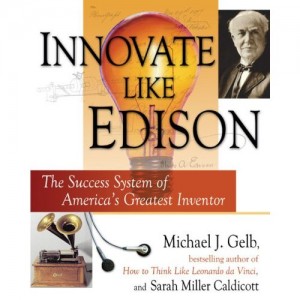 Innovate Like Edison is a must-read for anyone who wants to thrive in the “flat world.” Had it been written in the 20th century, the book would have been applicable to R&D leaders, and it would have been a nice-to-have for business and government leaders. Innovation was the place kicker on the team during the Industrial Economy because companies created value through efficiency (refining continuous processes), and innovation is about discontinuous processes. Innovate Like Edison is a must-read for anyone who wants to thrive in the “flat world.” Had it been written in the 20th century, the book would have been applicable to R&D leaders, and it would have been a nice-to-have for business and government leaders. Innovation was the place kicker on the team during the Industrial Economy because companies created value through efficiency (refining continuous processes), and innovation is about discontinuous processes.
In the 21st century Knowledge Economy, however, innovation is the linebacker. Customers merely expect world-class efficiency, but it rarely differentiates. Innovation is now a core competency at most levels of every organization.
The problem is, the authors explain, is that very few people are innovation literate, and they don’t know how to practice it practically. As I’ve written extensively, business innovation failures are over 95%, and most new products fail at high rates. We must reposition innovation as a linebacker, and that means understanding it differently and treating it differently.
[…]
Three CIOs Share Vision and Techniques for Creating the Networked Enterprise—Facebook and Tagging Creep In
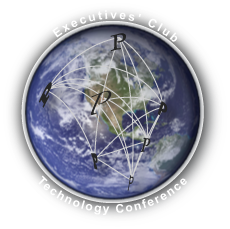 After James Owens’ luncheon address, the Executives’ Club of Chicago’s 2007-08 Technology Conference series opened with the CIO of the Year Award and a sneak preview of the 2008 Chicago Technology Outlook Survey. After James Owens’ luncheon address, the Executives’ Club of Chicago’s 2007-08 Technology Conference series opened with the CIO of the Year Award and a sneak preview of the 2008 Chicago Technology Outlook Survey.
Then a diverse panel of executives took the stage to discuss the role of the CIO in the “networked economy 2.0.” Bahman Koohestani, Senior Vice President & Chief Information Officer, Orbitz Worldwide, Paul Mankiewich, Chief Technology Officer, Alcatel-Lucent and Karenann Terrell, Chief Information Officer, Baxter International, shared their visions for the evolving role of the CIO and IT. John Gentry, Partner and Managing Director, CSC Consulting, moderated the panel discussion with aplomb. The Club’s quarterly Technology Conference took place October 16 at the Chicago Hilton.
Although the panel represented such diverse businesses as pharmaceutical giant Baxter, global network equipment provider Alcatel-Lucent and travel sensation Orbitz, all were very focused on how CIOs needed to enable a new level of innovation by fostering a new level of trust and adopting a networked model—for everything. […]
Will China’s Rise Lead to an Environmental Catastrophe? summarizes The Economist Chicago debate, examining the environmental fallout of the Chinese economic supernova—sibling rivalry rears its ugly head.
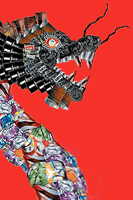 In 2007, nary an RSS feed or the page of a newspaper (for those still inclined ,^) does not mention China’s exploding impact on the global stage: China is truly an economic supernova, and it is breaking almost any record for development that is laid before it. However, China’s breakneck development is accompanied by grave environmental fallout: for example, as the host of the Beijing 2008 Olympic Games, the city is designing extreme measures to ensure that the air is clean enough for the athletes to breathe. The chief culprit is coal, a key source for China’s insatiable need for electric power, and a resource that the country has in abundance. For key facts on China, I suggest The Economist’s Country Briefing or CSRA’s Emerging Markets category (in depth) or China tag (mentions). In 2007, nary an RSS feed or the page of a newspaper (for those still inclined ,^) does not mention China’s exploding impact on the global stage: China is truly an economic supernova, and it is breaking almost any record for development that is laid before it. However, China’s breakneck development is accompanied by grave environmental fallout: for example, as the host of the Beijing 2008 Olympic Games, the city is designing extreme measures to ensure that the air is clean enough for the athletes to breathe. The chief culprit is coal, a key source for China’s insatiable need for electric power, and a resource that the country has in abundance. For key facts on China, I suggest The Economist’s Country Briefing or CSRA’s Emerging Markets category (in depth) or China tag (mentions).
The Economist and WBEZ 91.5 FM presented an Oxford-style debate on the effect that China’s rise […]
Caterpillar CEO Pitches Free Trade to Business Leaders at Executives’ Club asks whether the U.S. is at turning point with global economy in the balance—A lack of courage?
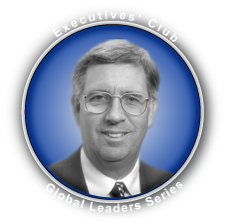 James W. Owens, Chairman and Chief Executive Officer of Caterpillar Inc., beseeched U.S. business and government leaders to find the courage to save free trade. The speaker at the Executives’ Club of Chicago’s Global Leaders Series, Owens addressed a packed house at the Hilton Chicago on 16 October 2007. His speech was immediately followed by the Club’s Technology Conference at which CIOs advised their peers on the emerging role of the CIO in the “networked economy 2.0.” James W. Owens, Chairman and Chief Executive Officer of Caterpillar Inc., beseeched U.S. business and government leaders to find the courage to save free trade. The speaker at the Executives’ Club of Chicago’s Global Leaders Series, Owens addressed a packed house at the Hilton Chicago on 16 October 2007. His speech was immediately followed by the Club’s Technology Conference at which CIOs advised their peers on the emerging role of the CIO in the “networked economy 2.0.”
A Ph.D. economist with extensive global management experience, Owens made a very convincing argument that the U.S. and the global economy are at a turning point. It is time for the U.S. to lead by example to assure the continuance of the free trade juggernaut that has produced so much wealth in the world. If it fails, the world stands before the prospect of sharply curtailed trade.
Following […]
|
|
 Honestly Assessing Quality—Engaging Consumer Empowerment—Trading in the Ferrari for a Chevy
Honestly Assessing Quality—Engaging Consumer Empowerment—Trading in the Ferrari for a Chevy
 Illinois leaders were addressed by His Excellency Shri Kamal Nath, Minister of Commerce and Industry, Republic of India. True to form, His Excellency struck chords of transformation, partnership, common interests and harmony at the lunch held in his honor at the University Club on 19 February 2008. Attending were Chicago Mayor Richard M. Daley, Mr. Rajinder Bedi, Managing Director of the Illinois Office of Trade and Investment, The Honorable Susan Schwab, U.S. Trade Representative, Craig S. Donohue, Chief Executive Officer, CME Group and John Estey, President & Chief Executive Officer, SC Electric Company.
Illinois leaders were addressed by His Excellency Shri Kamal Nath, Minister of Commerce and Industry, Republic of India. True to form, His Excellency struck chords of transformation, partnership, common interests and harmony at the lunch held in his honor at the University Club on 19 February 2008. Attending were Chicago Mayor Richard M. Daley, Mr. Rajinder Bedi, Managing Director of the Illinois Office of Trade and Investment, The Honorable Susan Schwab, U.S. Trade Representative, Craig S. Donohue, Chief Executive Officer, CME Group and John Estey, President & Chief Executive Officer, SC Electric Company. The Executives’ Club of Chicago fielded an expert panel to brief Midwest executives on Web 2.0’s current and likely impact on one of the most watched U.S. elections in recent history. Marie Cocco, a renowned political columnist, Peter Greenburger, Director of Google’s Elections & Issue Advocacy Team, and Alan Webber, Senior Analyst of Forrester Research brought to bear diverse perspectives on the question at the event, which took place at The University Club on January 31, 2008.
The Executives’ Club of Chicago fielded an expert panel to brief Midwest executives on Web 2.0’s current and likely impact on one of the most watched U.S. elections in recent history. Marie Cocco, a renowned political columnist, Peter Greenburger, Director of Google’s Elections & Issue Advocacy Team, and Alan Webber, Senior Analyst of Forrester Research brought to bear diverse perspectives on the question at the event, which took place at The University Club on January 31, 2008. As I reflect on 2007 and create strategy for 2008, several macro-trends come into sharp relief, and I believe that some of them might be helpful to you as you conduct your own planning. As always, I focus on emerging phenomena because they are areas in which disruption and discontinuous change are acting on markets, thereby elevating threats and opportunities. Helping leaders to create strategy to manage the risk of unusual market developments is the focus of my consulting practice.
As I reflect on 2007 and create strategy for 2008, several macro-trends come into sharp relief, and I believe that some of them might be helpful to you as you conduct your own planning. As always, I focus on emerging phenomena because they are areas in which disruption and discontinuous change are acting on markets, thereby elevating threats and opportunities. Helping leaders to create strategy to manage the risk of unusual market developments is the focus of my consulting practice. Emerging countries have long been regarded by globalizers as targets for exploitation, but 21st century market forces are turning legacy thinking on its head, which produces disruption and its sibling, opportunity.
Emerging countries have long been regarded by globalizers as targets for exploitation, but 21st century market forces are turning legacy thinking on its head, which produces disruption and its sibling, opportunity.
 Innovate Like Edison is a must-read for anyone who wants to thrive in the “flat world.” Had it been written in the 20th century, the book would have been applicable to R&D leaders, and it would have been a nice-to-have for business and government leaders. Innovation was the place kicker on the team during the Industrial Economy because companies created value through efficiency (refining continuous processes), and innovation is about discontinuous processes.
Innovate Like Edison is a must-read for anyone who wants to thrive in the “flat world.” Had it been written in the 20th century, the book would have been applicable to R&D leaders, and it would have been a nice-to-have for business and government leaders. Innovation was the place kicker on the team during the Industrial Economy because companies created value through efficiency (refining continuous processes), and innovation is about discontinuous processes. After James Owens’ luncheon address, the Executives’ Club of Chicago’s 2007-08 Technology Conference series opened with the CIO of the Year Award and a sneak preview of the 2008 Chicago Technology Outlook Survey.
After James Owens’ luncheon address, the Executives’ Club of Chicago’s 2007-08 Technology Conference series opened with the CIO of the Year Award and a sneak preview of the 2008 Chicago Technology Outlook Survey. In 2007, nary an RSS feed or the page of a newspaper (for those still inclined ,^) does not mention China’s exploding impact on the global stage: China is truly an economic supernova, and it is breaking almost any record for development that is laid before it. However, China’s breakneck development is accompanied by grave environmental fallout: for example, as the host of the Beijing 2008 Olympic Games, the city is designing extreme measures to ensure that the air is clean enough for the athletes to breathe. The chief culprit is coal, a key source for China’s insatiable need for electric power, and a resource that the country has in abundance. For key facts on China, I suggest The Economist’s Country Briefing or CSRA’s Emerging Markets category (in depth) or China tag (mentions).
In 2007, nary an RSS feed or the page of a newspaper (for those still inclined ,^) does not mention China’s exploding impact on the global stage: China is truly an economic supernova, and it is breaking almost any record for development that is laid before it. However, China’s breakneck development is accompanied by grave environmental fallout: for example, as the host of the Beijing 2008 Olympic Games, the city is designing extreme measures to ensure that the air is clean enough for the athletes to breathe. The chief culprit is coal, a key source for China’s insatiable need for electric power, and a resource that the country has in abundance. For key facts on China, I suggest The Economist’s Country Briefing or CSRA’s Emerging Markets category (in depth) or China tag (mentions). James W. Owens, Chairman and Chief Executive Officer of Caterpillar Inc., beseeched U.S. business and government leaders to find the courage to save free trade. The speaker at the Executives’ Club of Chicago’s Global Leaders Series, Owens addressed a packed house at the Hilton Chicago on 16 October 2007. His speech was immediately followed by the Club’s Technology Conference at which CIOs advised their peers on the emerging role of the CIO in the “networked economy 2.0.”
James W. Owens, Chairman and Chief Executive Officer of Caterpillar Inc., beseeched U.S. business and government leaders to find the courage to save free trade. The speaker at the Executives’ Club of Chicago’s Global Leaders Series, Owens addressed a packed house at the Hilton Chicago on 16 October 2007. His speech was immediately followed by the Club’s Technology Conference at which CIOs advised their peers on the emerging role of the CIO in the “networked economy 2.0.”